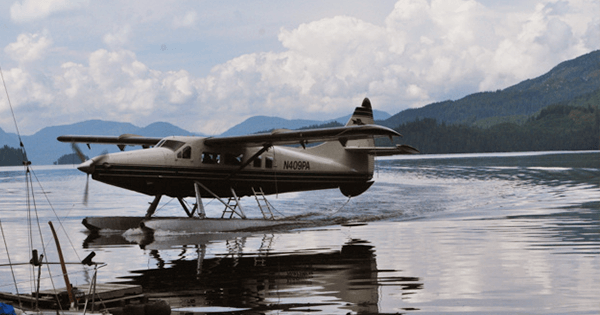
We came back from fish camp a little more than a week ago, and already our two-week “working vacation”—at the north point of a remote seven-mile-long island about 60 miles west of here—feels like a dream.
We flew by floatplane to our friends’ commercial salmon operation with enough fresh produce to last us a week. The rest of our nonperishables we sent on the tender boat, the vessel that delivers ice, mail, gasoline, and groceries to camp three times a week and picks up fish, non-burnable trash, and outboards needing the shop.
As it is in any part of Alaska, the commercial fishing activities were highly regulated. Fishing was open three days a week—Mondays, Thursdays, and Saturdays—from six in the morning to 10 at night. On the fishing days when I served as a deckhand, I’d set my alarm for quarter to five so that I could grab a quick cup of tea and a snack before getting geared up by 5:30.
There is a way to do everything at fish camp. Getting dressed for a fishing day is no different. First there were rubber hip waders to put on. Then a life vest. Sturdy rubber rain bibs went over the life vest, smoothing over all of the buckles and other catch points that could snag a fishing net. A baseball cap was useful, as were sunglasses on bright days. Then we smothered Bag Balm all over our hands before pulling on cotton under-gloves and then orange vinyl fishing gloves that went up to our elbows.
Our friends fish 12 sites—meaning 12 nets—using three skiffs. We’d have the first net in the water by six in the morning, feeding about 200 feet of net out the stern of a Boston whaler. Tides determine the rhythm of a fishing day—when you stay out and pick the nets, when you head back to camp to rest and eat. We pulled the nets out of the water by 10 at night—with the sun still shining—and then delivered fish to totes of ice on a barge anchored offshore. Dinner on fishing days usually happened after a couple of drinks, around 11.
At Paula and Jon’s fish camp, you poop in an outhouse with stunning views of a 2,600-foot rocky peak, collared by a meadow of bright pink fireweed. You collect water from a waterfall about a mile down the beach. Aside from dunks in the sea, you clean yourself in a small plywood shower house inside which a car battery powers a small pump submerged in a large plastic trash can full of water. The pump delivers the water through a propane heater to a handheld nozzle. On non-fishing days, Paula wrote out a list of camp chores, and we’d sign up for specific tasks. Or we would play—explore nearby tidepools, dig razor clams, have a beach barbeque surrounded by ancient marine fossils, or, one evening, take the skiffs up narrow grassy sloughs at high tide to find half a dozen brown bears, including a sow with cubs.
Our kids spent the two weeks barefoot and half-naked, wandering between their tent, the cobble beach, and trampoline surrounded by chest-high wildflowers. Picking kelp out of fishing nets was their main camp chore. But their favorite activity was going on a water run, which meant getting to ride on—and drive—the four-wheeler. We would tow a dozen or so water jugs on a flatbed trailer down the beach, and the kids would take turns filling the jugs using a garden hose that was connected to a bucket propped on rocks in the middle of the stream of water.
Just to describe the mechanics of life, of course, does not capture our time there. There were so many moments of exceptional beauty, like the way the line of white, grapefruit-sized corks at the top of a fishing net seemed to shimmer as the sea rolled under it. Or the way the differences between species of salmon became so clear: the bright silver and large scales of a red, the watercolor marks and coppery tail of a dog, the silver paint on a silver’s tail, and the small scales and tail spots of a pink (we knew to look for the black gums of a king but never caught one of those prizes during our stay). Or the way you could look back at camp from the beach and see the kids’ heads floating momentarily over a field of rye grass as they launched themselves skyward on the trampoline. Or how, on the last fishing day, when morning fog enveloped the island, the rising sun turned the air around us to gold.
After all of that, life back in town is a bit of a disappointment.

